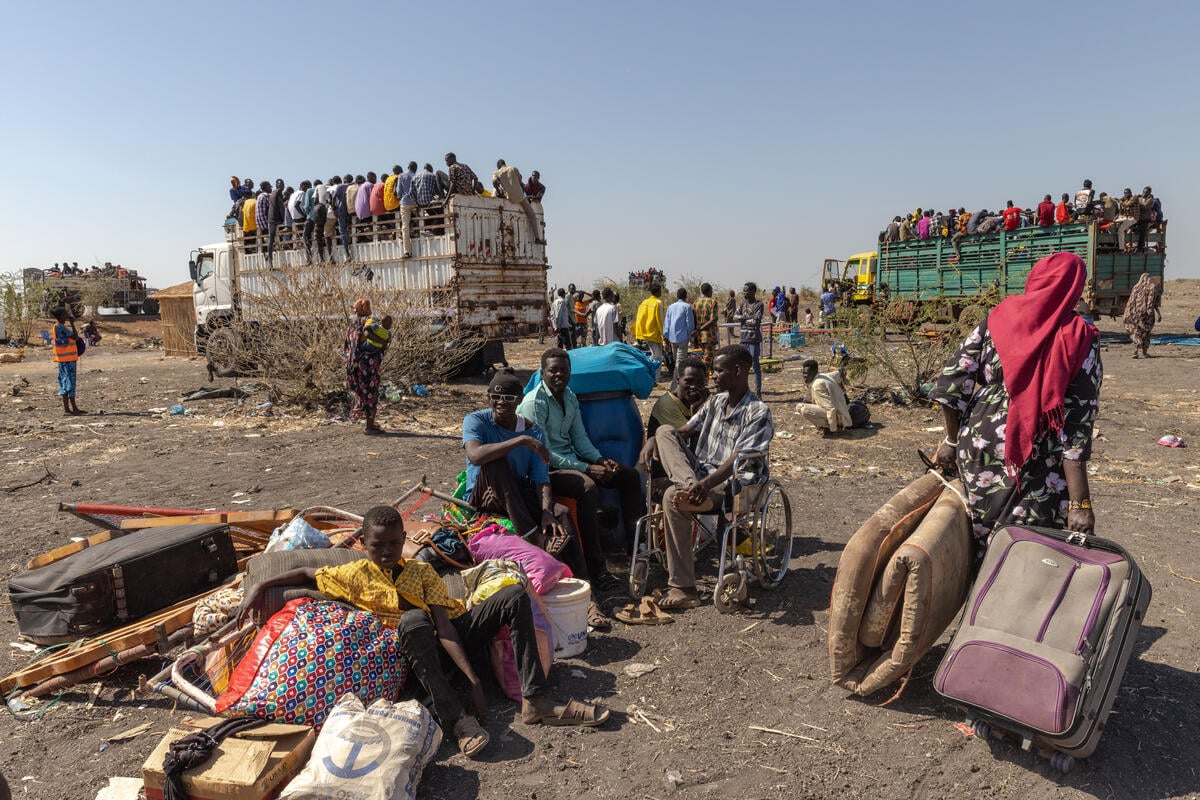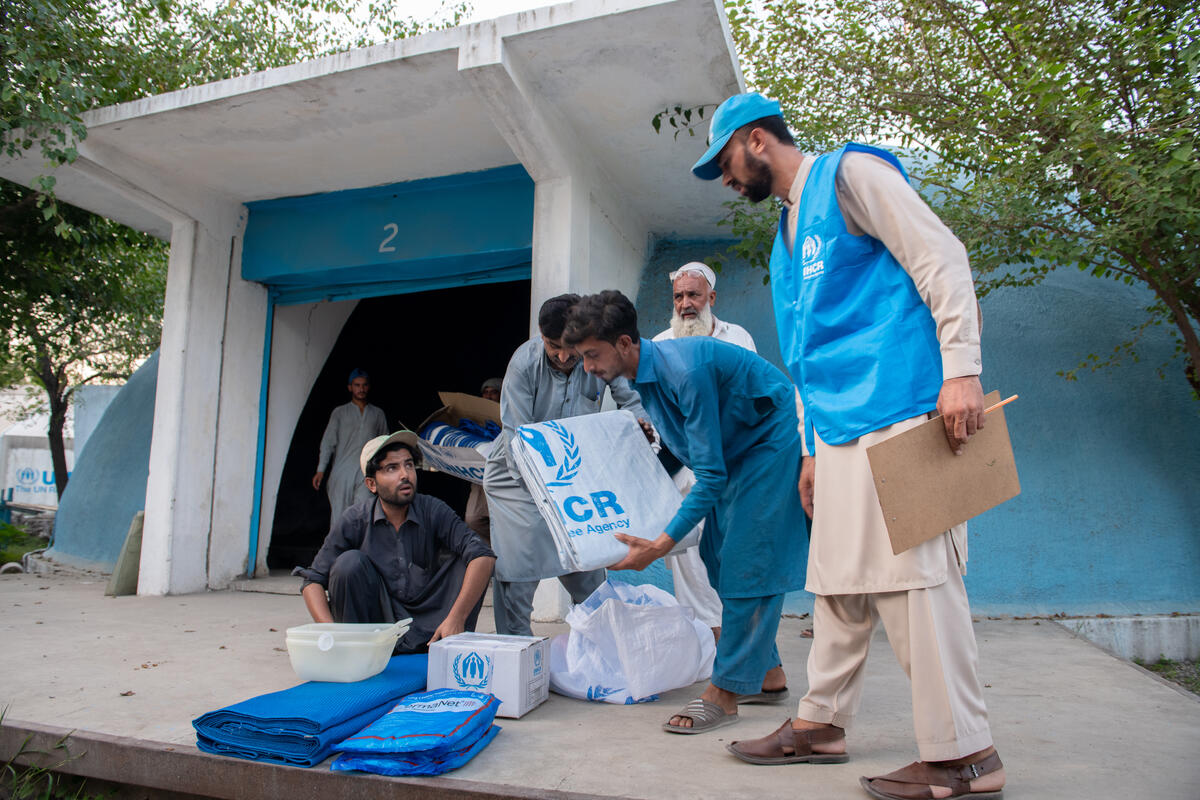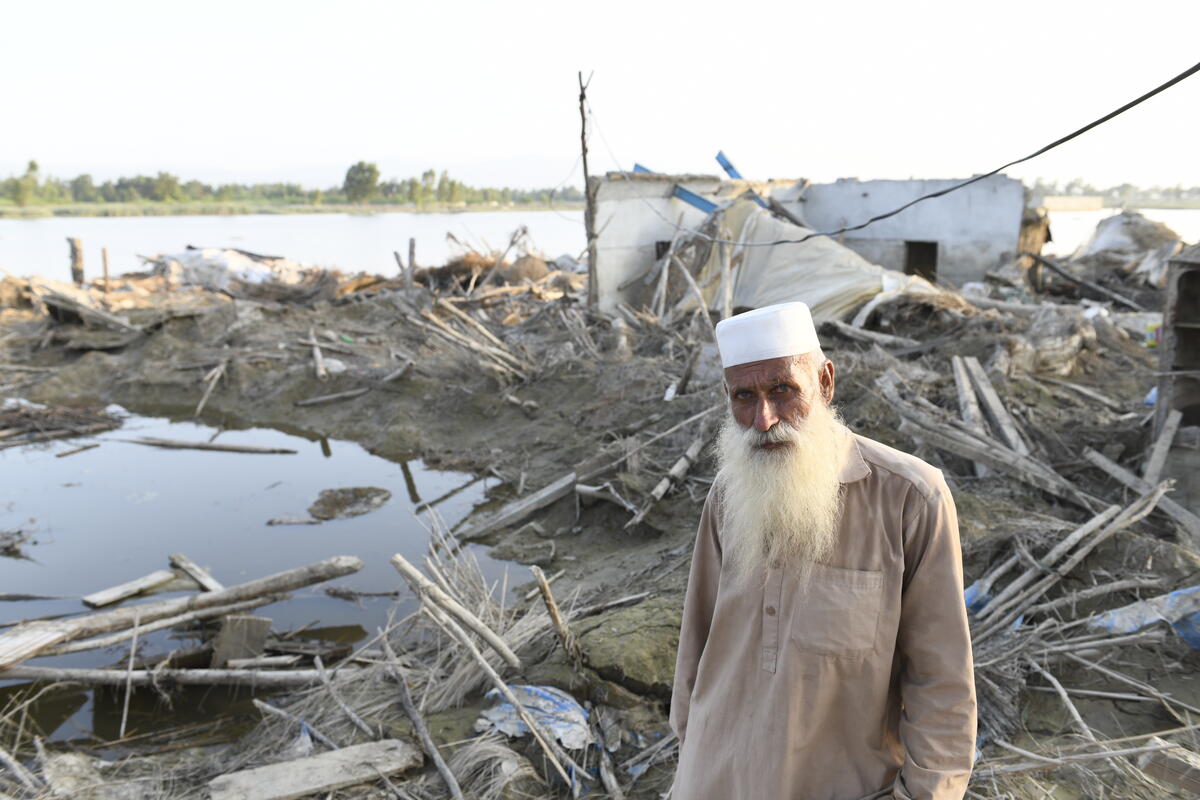Stranded Afghans to move to new site near Kandahar
Stranded Afghans to move to new site near Kandahar

KANDAHAR, Afghanistan, August 7 (UNHCR) - More than 500 Afghan families stuck since February in a makeshift camp just inside Pakistan's border have decided to move to a new site near Kandahar following a visit there by their refugee leaders. Relocation could start as early as mid-August.
Eighty refugee leaders representing the stranded Afghans stuck at Chaman, near the Afghan border, just returned from a "go-and-see" visit to Zhare Dasht, 30 km from Kandahar on the road to Herat.
At a meeting convened after the visit, Mohammad Zaman, who represents Afghans from Jozjan province in northern Afghanistan, said, "We understand that the situation is not going to improve immediately in the north of Afghanistan. This is why our 500 families have decided to relocate to Zhare Dasht."
UNHCR hopes to transfer the first group by mid-August, but the agency's legal officer in Kandahar, Aliya Al-Khatari, emphasised that the decision to move would be made by the refugees, a position frequently reiterated by aid workers trying to assist the stranded Afghans.
"The decision on whether they relocate to Zhare Dasht is up to them," said Jack Redden, UNHCR spokesman in Islamabad.
Zhare Dasht could host not just the nearly 26,000 Afghans stranded at Chaman when Pakistan closed its borders to refugees in February. The site's 60,000-person capacity and adequate water supply could also absorb the more than 30,000 internally displaced persons (IDPs) encamped around the Afghan border town of Spin Boldak.
During the "go-and-see" visit, UNHCR site planner Roy Oliff told the refugee representatives that water was found 20-24 metres below the surface and that each of the 12 individual settlements planned for Zhare Dasht would have 13 hand pumps for drinking water.
Those Afghans who agree to relocate will live in a tented transit site while they build their own homes on allocated 500-square-metre plots. The World Food Programme will provide a food assistance package of wheat, oil and pulses for nine months. Health needs will be met by health centres in each of the four planned settlements. There will also be mobile medical units.
The Zhare Dasht site includes space for a community services centre where mosques, schools and markets can be built. There is also the possibility that the Afghans could later begin farming, with plans to provide professional advice and supply seeds and tools.
International Save Our Souls (Intersos) will handle camp management, International Catholic Migration Commission (ICMC) will organise registration and Médecins Sans Frontières (MSF) will provide the medical facilities.
Roberto Gaibbisso of Intersos said his organisation was involved with donors to devise an educational and vocational training programme. He added, "But this is a step by step process and will take some time. During this period, we want the aid agencies and IDPs staying at the Zhare Dasht camp to feel like a community."
Many of those stranded in Chaman are ethnic Pashtuns who said they had fled their homes in the north because of harassment by other ethnic groups, who form the majority in that region.
For some, Zhare Dasht offers a welcome alternative to the waterless wasteland and choking dust storms that prevail at Chaman, even if they see it as a temporary move.
Dr Ahmed, from Faryab province, said his people had fled to Chaman because of ethnic tension, and appealed for information on the security situation back home. "Pashtuns were victimised by brutal warlords. We hope to get rid of these warlords soon," he said. "We ask to go back whenever the situation improves in Faryab province."
Haji Abdul Hameed Agha, Minister for Repatriation in Kandahar, tried to reassure those stranded at the border that the government was trying to create stability. "We have to make sure that the destruction of the past will not return to our land."
Some refugees from northern Afghanistan said they had not given up hope of an early return home - and were ready to hang on a while longer in their inhospitable location before moving to Zhare Dasht. But even they have set a one-month deadline.
Aziz Khan, who came from Sar-i-Pul province, said, "Our representative, Haji Khair Mohammad, is in Kabul discussing security concerns with the new Afghan authorities. If he finds it safe to return to our province, we will go back. But if he says no, then we are ready to be relocated to Zhare Dasht."









